
Find Your Soulmate
Society tells us to delay marriage. The Sages however, tell us how important it is to marry at a proper time.

“May the angel who redeemed me from all harm bless the youths”… (Bereishit 48:16)
A Spiritual Chessed
Today, many Jewish men and women are choosing to get married later in life. Anyone who knows someone like this, should feel compelled to do everything within their power to change this mentality, and to help them get married at a proper time. This is one of the greatest acts of chessed, kindness, that you can do for someone else.
This is not merely a physical chessed, but a spiritual one as well: you are saving someone from potential sins, and helping him to set up and raise a Jewish family in purity and holiness.
Chazal (Kiddushin 29b) related the following story:
Rav Chisda was praising Rav Hamnuna to Rav Huna. And, Rav Huna told him that the next time they were together he should bring Rav Hamnuna to him so that he could see his greatness firsthand. When they met, he noticed that Rav Hamnuna did not cover his head with his tallit as was customary for a married man. When he inquired about it, Rav Hamnuna replied, “I haven’t married a woman yet.”
When Rav Huna heard that, he turned away and refused to look at him saying, “Do not come back to see him until you are married because, after the age 20, it is impossible for a man to safeguard himself from impure thoughts if he remains unmarried.”
Avoid Inappropriate Desires
This is included in the mitzvah described in the Torah (Devarim 23:10), “You shall beware of everything evil”. Chazal explains (Avodah Zara 20b) that a person should not think impure thoughts during the day that could lead to impurity at night. This is a general mitzvah to do everything you can to avoid becoming impure by having thoughts driven by lustful desire.
When someone is married, this becomes far easier. Therefore, included in this mitzvah is the idea that a person should get married as soon as possible. A married person is less lustful (Yoma 18b). And, even if those thoughts enter a married person’s mind, they are less likely to lead to impurity (Ketuvot 65a).
The Beit Yisroel from Gur, zt”l, once asked an older bachelor why he had neglected to fulfill what it says in Pirkei Avot (5:21) ‘Shemonah Esrei’ (=18) is a suitable age for a man to get married. The bachelor lightheartedly responded, “My ‘Shemonah Esrei’ is longer than other people’s. (A play on the words for those who daven the ‘Shemonah Esrei’ longer than others in the minyan).” The Rebbe in his typical wit answered back, “If you extend your ‘Shemonah Esrei’ too long, you miss ‘kedusha’…”
The Me’iri explains, that the Mishna (ibid) taught “Twenty – to pursue” means, that if someone has not married by the time they are 20, they need to actively pursue marriage without delay, to avoid inappropriate thoughts and behaviors. Similarly, R’ Yitzchak Abarbanel explains, that the author of this Mishna is warning us, that a person starts to pursue immoral and immodest temptations at the age of 20 if he is unmarried. Through marriage these inappropriate desires dissipate.
Of course, there are circumstances and opinions that allow one to wait until they are older to marry, like the Yam Shel Shlomo (Kiddushin 1:57) for example, who taught that one can wait until 24 years old before marrying. Nevertheless, marriage in a timely manner needs to be a priority.
Have Times Changed?
Today, some people wait until they are older to get married, and they argue that that the times have changed since the days of Chazal. This is not a new dynamic. In every generation, there have been such people who had this opinion. But Jewish leaders have always opposed these misguided views.
The Chida addresses these claims in Nachal K’domim (Emor 13), where he writes on this, that Chazal’s teachings are relevant and applicable in every generation. In fact, their teachings are even more critical in the later generations when the Yetzer Harah is even more powerful.
R’ Chaim Palagi writes about this at length in Tochachot Chaim (Bereishit 1), where he says, that we see that delaying marriage leads to tremendous transgressions and it even causes some Jews to stray completely off the path of Torah and mitzvot.
If these sages taught this during the times in which they lived, how much more so are these words applicable today, when society’s morality has decayed to such a degree that the streets are filled with promiscuity and immoral behavior. Today, there are so many ways to access inappropriate images and vices, that it is imperative that everyone does what they can to help people get married at an early age, as the Rambam writes (Hilchot Issurei Bina, 21:25) that it is a rabbinic mitzvah to help your children get married at a younger age so that they avoid indulging in sinful behavior and impure thoughts.
The Ben Ish Chai explains, that the Jews in Babylonia got married much younger than in Israel, because its culture was overrun with temptation and morals defined by desire.
The Matchmaker’s Impact
We see this through the lives of our forefathers:
If they were near the Holy Land and served as shepherds where there was no temptation for illicit behavior, they did not need to marry young. However, when the time came to go down to Egypt and settle in a place of such impurities, Yaakov ensured that all his sons were married first, even the youngest of them, as the Midrash Yalkut Shimoni explains the pasuk (Shemot 1:1) “each man and his household came”.
This is what Yaakov was teaching all the Jews when he said, “may the Malach (angel) who redeemed me from all harm bless the youths”. The Zohar HaKodesh explains that the word ‘Malach’ is referring to a matchmaker- who serves as Hashem’s messenger. The matchmaker saves a person from falling into impure behaviors as it says, “who redeemed me from all harm”.
Someone who helps youths to get married at a proper time, is “blessing the youths”, because through sanctifying their actions and thoughts in this area, they can merit what is said (Mishlei 5:18), “Your fountain shall be blessed, and you shall rejoice with the wife of your youth”.
***
The Kalever Rebbe is the seventh Rebbe of the Kaalov Chasidic dynasty, begun by his ancestor who was born to his previously childless parents after receiving a blessing from the Baal Shem Tov zy”a, and later learned under the Maggid of Mezeritch zt”l. The Rebbe has been involved in outreach for more than 30 years, and writes weekly emails on understanding current issues through the Torah. You can sign up at www.kaalov.org.


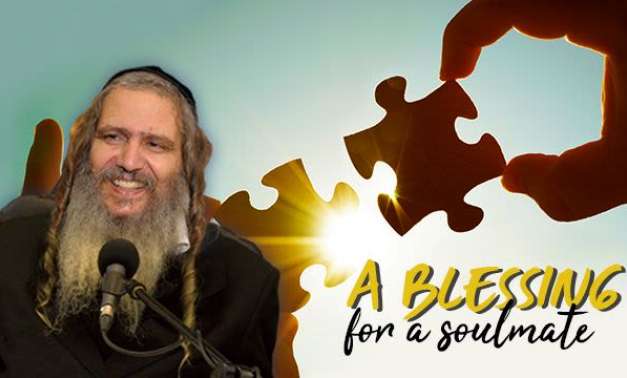
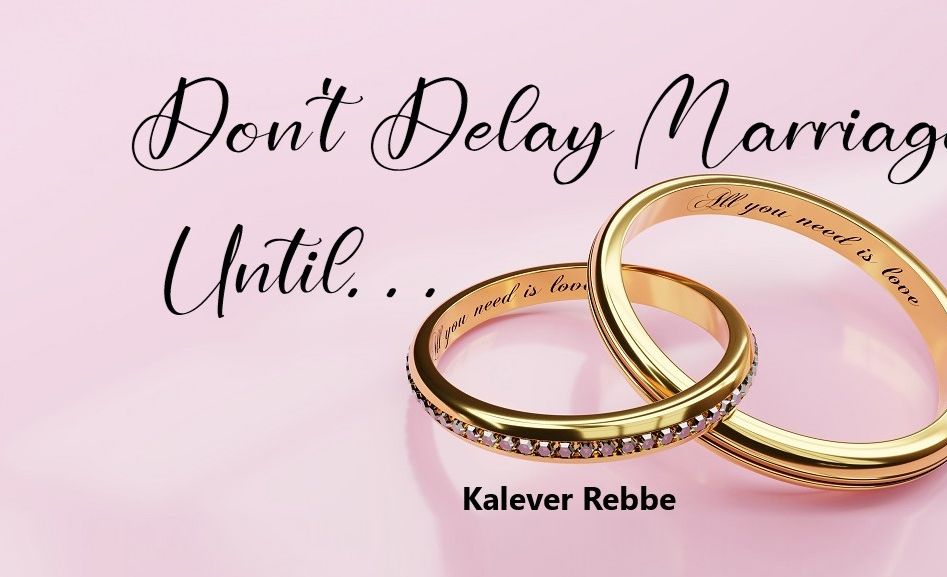
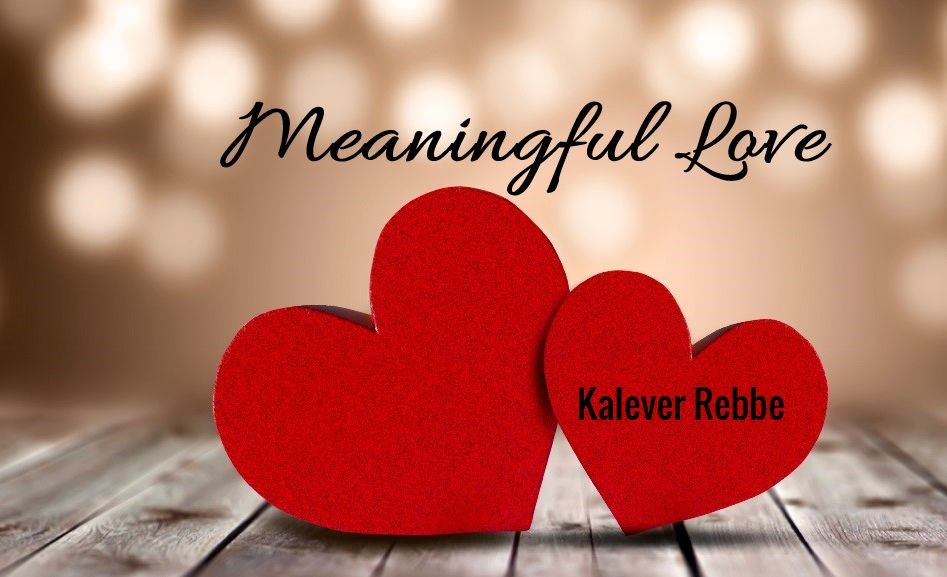
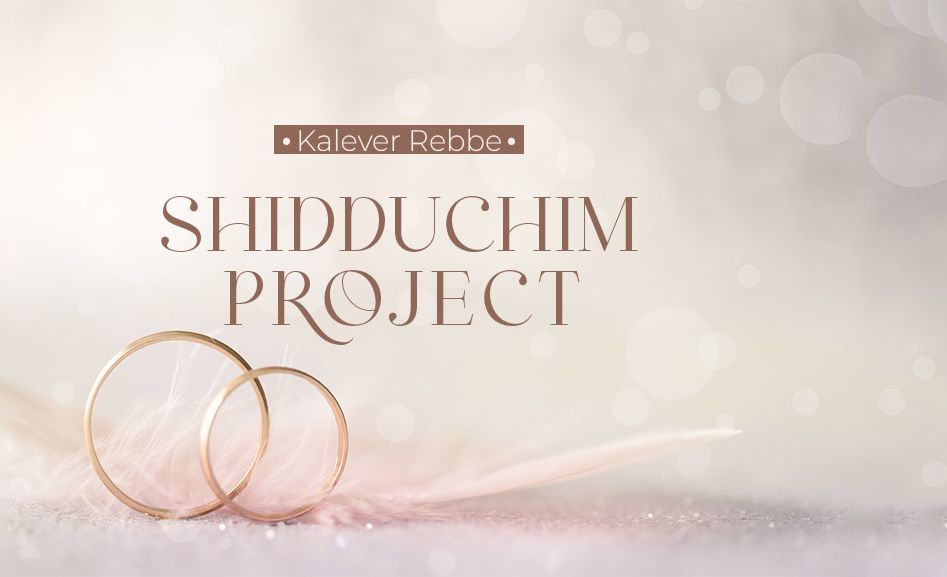
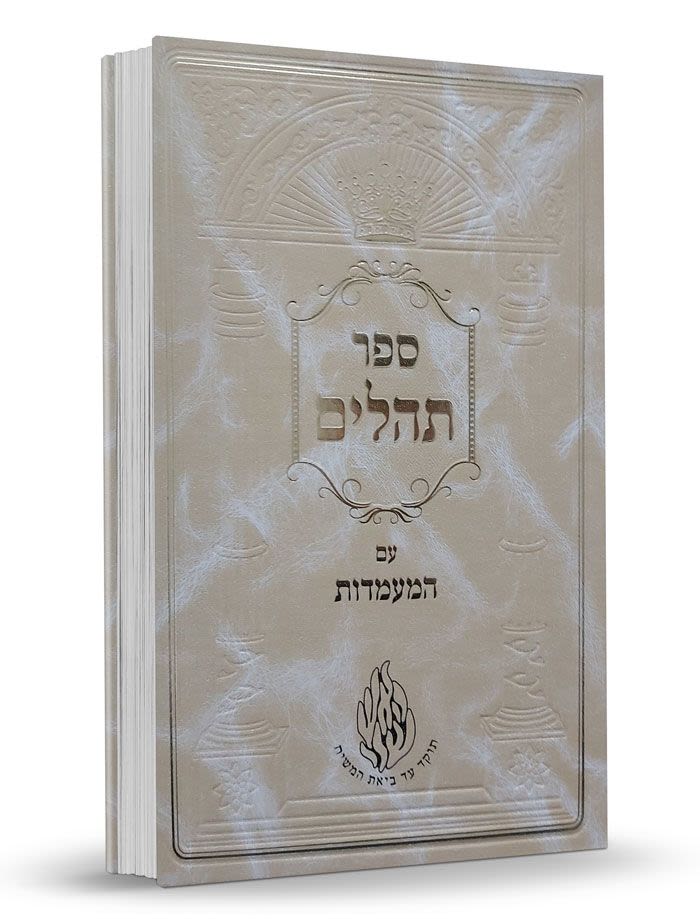
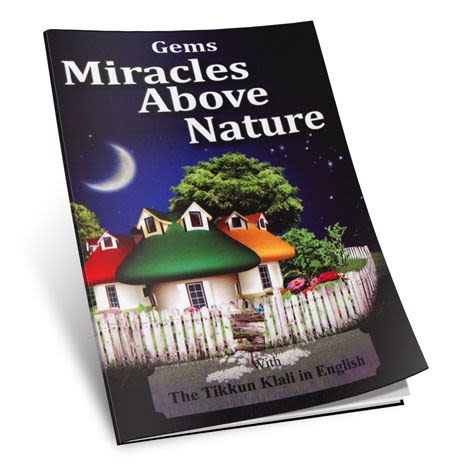
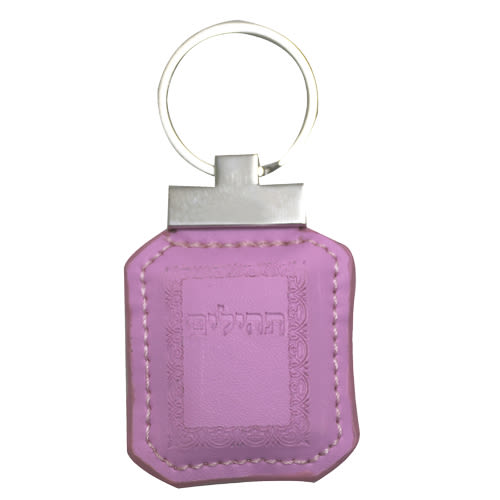
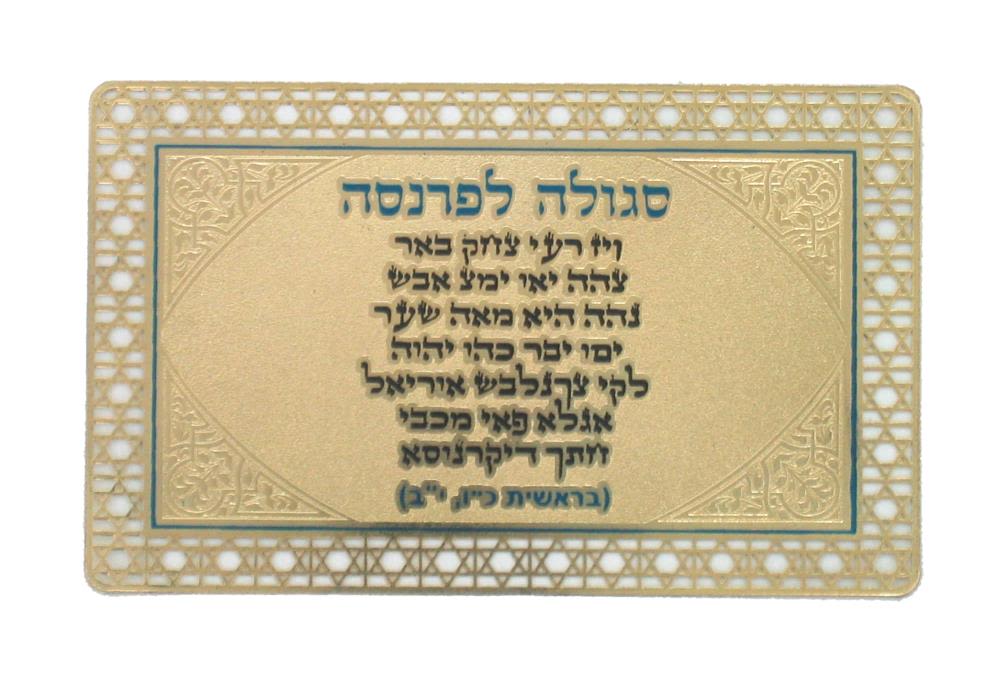
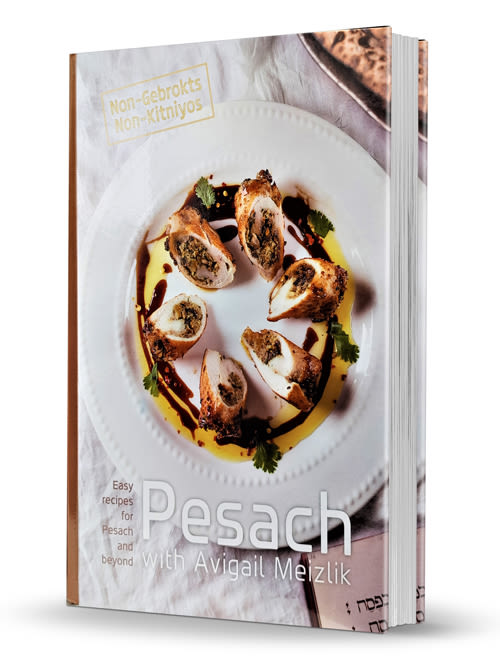
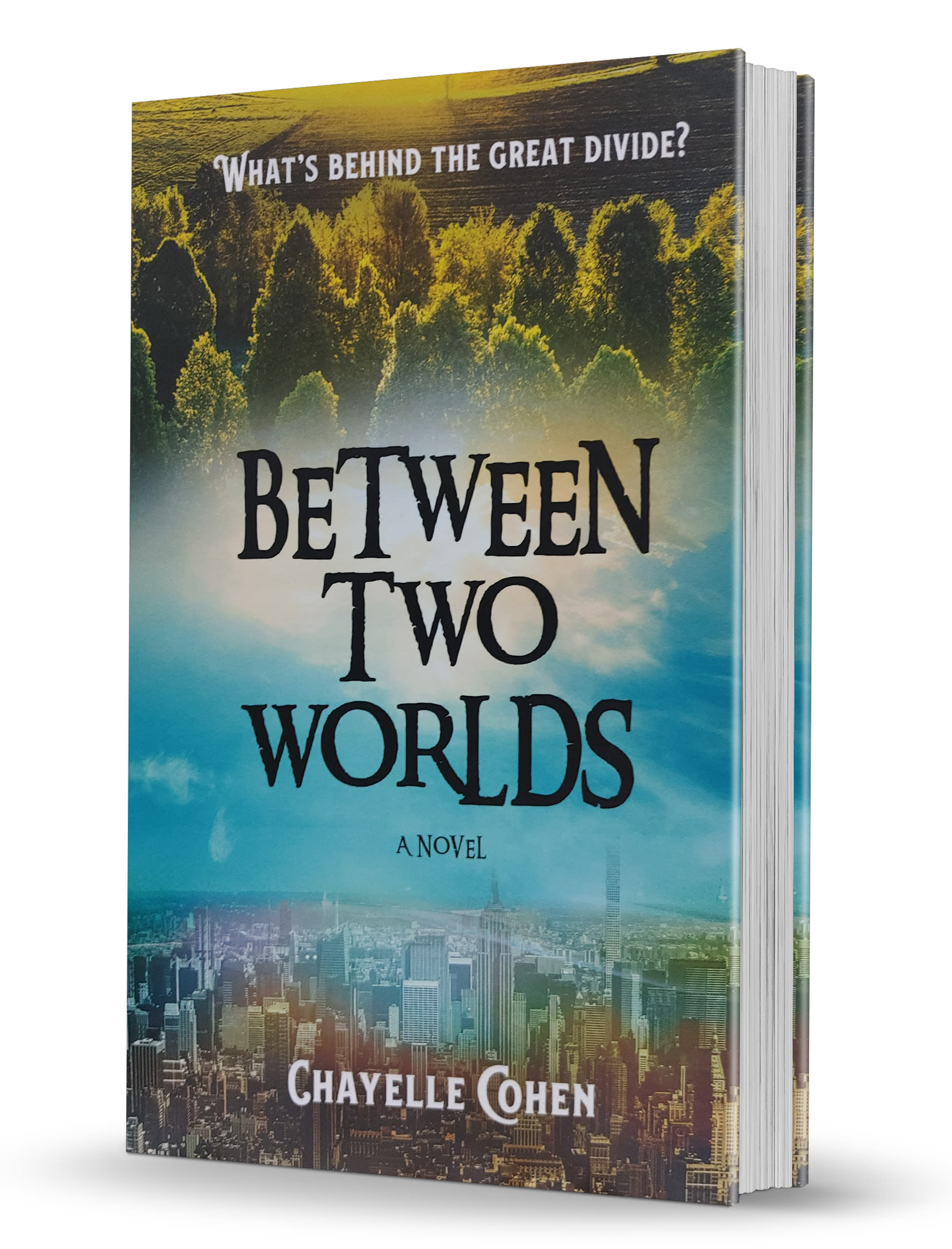
Tell us what you think!
Thank you for your comment!
It will be published after approval by the Editor.